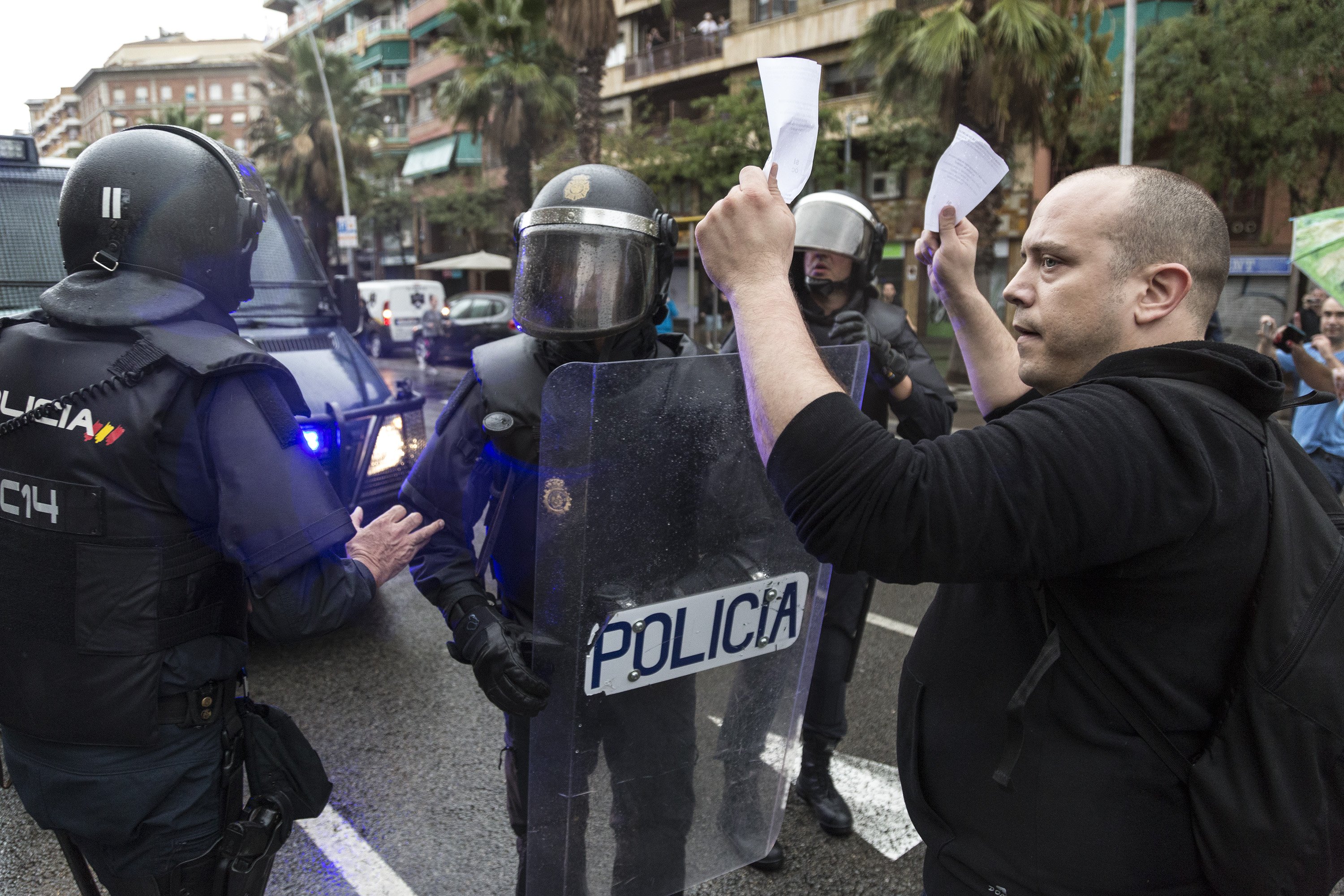The Public Prosecutor has supported the intervention by the Spanish National Police and the Civil Guard to prevent the 1st October referendum. In a statement they said that it didn't affect "at all the normal citizen coexistence" because the agents acted in "legitimate defence" and they reprimand the Catalan government for their "irresponsibility" in calling "tumultuous" gatherings.
In a memo presented to Barcelona's court of instruction number 7, which is considering the complaint from the Catalan government against the two police forces, the prosecutor opposes investigating their actions more broadly, asking instead that the incidents in only one polling station be looked into, namely Jesuïtes school in Sant Gervasi.
The public prosecutor says that, on 1st October, in some cases National Police and Civil Guard agents acted in "legitimate defence" facing "unidentified individuals" that acted "violently" against them. They also not that the two forces were obeying the legal order to prevent the referendum, which had also been communicated to the Catalan police, the Mossos d'Esquadra.
After the police operations to prevent the referendum, the Catalan government denounced the two national forces to the judge, as they believed their actions to be "violent and disproportionate" leading to a "manifest disturbance of public peace" and a "clear breach" of the legal orders that specified they could not affect "normal citizen coexistence".
"Nothing is further from reality", the public prosecutor says. They believe the government's complaint to be "generic, indiscriminate and unspecific", arguing that the measures used by the Police and the Civil Guard "absolutely did not affect normal citizen coexistence".
"They affected, doubtlessly, the numerous groups of people that had been irresponsibly summoned by the Catalan government, aware of the illegality of the event and [aware] of the legal measures adopted [to prevent it]," the prosecutor writes.
They believe that groups of people "amassed voluntarily" in a "concentrated, coordinated" way in specific points around Barcelona to "tumultuously prevent the intervening police agents from fulfilling the legal decree" ordering them to prevent the vote.
"The behaviour of the police forces could be protected under the justification of fulfilling a duty and, in some cases, by the legitimate defence facing the actions of individuals not currently identified, who acted violently against the agents, committing alleged crimes of attacking and resistance," the public prosecutor says.
According to the letter, the Police and Civil Guard acted in fulfilment of an express order from the TSJC (Superior Court of Justice of Catalonia), which ordered them to prevent the opening of the polling stations. As such, the two forces were obeying these directives, which had also been handed to the Mossos.
The public prosecutor believes it "impossible" to contest a "generic accusation" like the one from the Catalan government, which says that the National Police and Civil Guard used "violence" against people gathered "peacefully". For the prosecutor, this is an "indiscriminate" accusation about the actions of numerous agents throughout the day.
In any case, they then turn to an "intellectual exercise" based on the data from the Catalan government. They say that, if 2,262,424 people voted and 844 were injured, that means that 0.037% of voters were affected by the "alleged police violence". What's more, with only a single person seriously injured, the public prosecutor notes that that means there was "around 0.000042% of individuals affected by the alleged serious police violence".
Nonetheless, they recognise that each and every one of the specific cases "is worth and requires" judges and prosecutors to clarify the facts, for which they ask for an investigation to be opened into the police operation at Jesuïtes school in Sant Gervasi in Barcelona.
For the prosecutor, the Catalan government is, with its complaint, aiming to create an "interested confusion" to "put the focus on the alleged violence of the actions by members of the National Police and the Civil Guard to leave the serious behaviour [of the members of their government] in the shadows".

